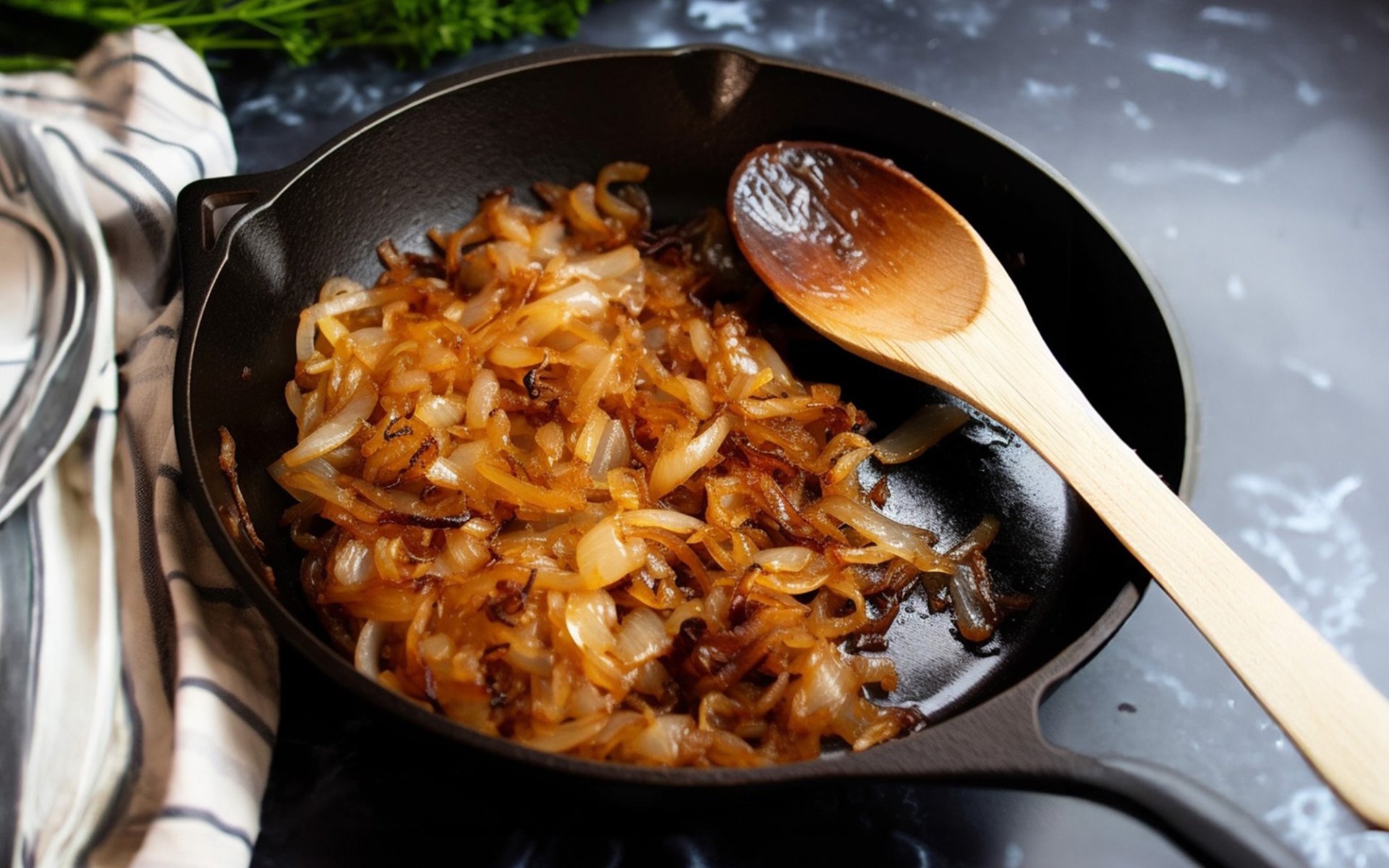Caramelized Onion

Onions are an incredibly popular ingredient in the culinary world. While raw onions deliver a pungent aroma and sharp taste, have you ever wondered why, when cooked slowly, they become wonderfully sweet and incredibly aromatic? Today, Rimping Supermarket invites you to uncover the fascinating chemical processes behind this transformation in your kitchen.
From Pungency to Sweetness: The Chemical Reaction of Onions
Like many vegetables, onions are rich in complex carbohydrates, which include various natural sugars. However, these sugars are "masked" in raw onions by more potent compounds called "Sulfenic Acids." These acids are primarily responsible for the pungent odor, slightly spicy taste, and the eye irritation that causes tears when slicing raw onions.
Therefore, cooking onions slowly over low heat is the key to "unlocking" their hidden sweetness. The gradual application of heat meticulously breaks down and transforms these compounds, completely altering the onion's flavor and aroma.
The Magic of Caramelization and Maillard Reactions
The process of making Caramelized Onions is a sophisticated and fascinating chemical transformation involving two main reactions working in concert:
- Caramelization: This process directly involves sugars. When sugars are subjected to sufficient heat (without the presence of proteins), they break down and undergo chemical changes, leading to the characteristic golden-brown color and the development of new, complex, and sweeter flavor compounds. In the case of onions, as they receive continuous and slow heat, this heat breaks down the onion's complex carbohydrates into simpler sugars like Fructose and Glucose, making these sugars' inherent sweetness more pronounced.
- Maillard Reaction: In addition to caramelization, the sugars present in onions also undergo the Maillard Reaction. This complex reaction occurs between amino acids (from the proteins in onions, however minimal) and reducing sugars when exposed to high heat. This reaction results in the onions turning a distinctive golden-brown color and developing even more complex and savory flavor compounds. It's not just about sweetness; it introduces diverse flavor dimensions, such as nutty notes or roasted, savory aromas.
Once onions are fully caramelized, their taste and aroma undergo a profound transformation. The initial pungency and sharp bite are replaced by a gentle sweetness and a more distinct, aromatic fragrance. However, the resulting flavor is not an overpowering sugary sweetness like that of candy; instead, it's a soft, natural sweetness that beautifully enhances the overall flavor profile of any dish, creating a balanced and impressive culinary dimension.
Tips for Perfect Caramelized Onions
Achieving perfectly caramelized onions requires meticulous attention to detail and patience. Follow these tips for the best results:
- Slicing: Slice onions evenly and relatively thinly to ensure they cook consistently and brown uniformly.
- Fat: Combine sliced onions with a small amount of oil and butter (if using) in a suitable pan. Butter adds richness and a delightful aroma.
- Temperature: Maintain consistent medium-low to low heat. Too high heat will burn the onions on the outside before the sugars fully break down and caramelize properly.
- Stirring: Stir the onions regularly to prevent burning and ensure even heat distribution. This process can take anywhere from 30-45 minutes, depending on the quantity.
- Appearance when done: When perfectly cooked, the onions will soften significantly, turn a deep golden-brown, and develop a distinctly sweet flavor.
Beyond their culinary appeal, caramelized onions still offer nutritional benefits. While the caramelization process may cause some nutrient loss, cooked onions retain several essential nutrients, including vitamins, minerals, and fiber, all crucial for good health.


